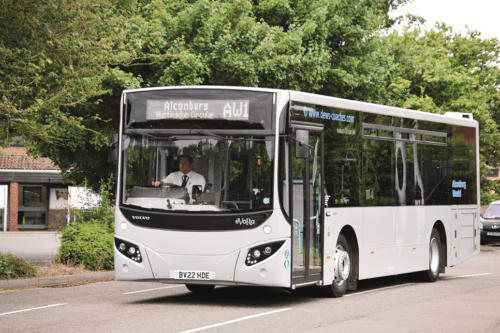
Steven Knight visits Somersham where local operator Dews Coaches has been celebrating its 70th anniversary
The village of Somersham dates back around 2,500 years and is situated nine miles east of Huntingdon and four miles north east of St Ives. The 2021 Census recorded a population of 3,348. It also has a claim to fame – it lies on the Greenwich Meridian Line which separates Earth into sections, truly the centre of the Universe!
Somersham is also home to Ron W Dew Limited, a bus and coach business which currently operates 53 vehicles and during 2023 has been celebrating 70 years in the transport sector.
At the helm today is Simon Dew, a third-generation member of the Dew family and the grandson of founder Ron.
Dews was founded in 1953 and, like many businesses of the time, started with just one vehicle – a 29 seat Duple-bodied Bedford OB – which was used on day trips but primarily private hire work.
The business in the early years saw some expansion with more coaches but really just catered for the local coach hire market, supplementing it with some tour work. Ron was content with a business that was ‘ticking over’ and doing reasonably well. However in 1964, Ron’s son, Simon’s father David, started working for the business and recognised that the business had potential and actively looked at opportunities for expansion. The business added school and works contracts to its portfolio and the fleet started to expand.
[…]By subscribing you will benefit from:
- Operator & Supplier Profiles
- Face-to-Face Interviews
- Lastest News
- Test Drives and Reviews
- Legal Updates
- Route Focus
- Industry Insider Opinions
- Passenger Perspective
- Vehicle Launches
- and much more!


